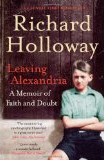 HeraldScotland, the online version of The Herald and Sunday Herald, posted a list of “Books Of The Year 2015: Herald Choices,” book recommendations from their “well-read panel” compiled by Lesley McDowell.
HeraldScotland, the online version of The Herald and Sunday Herald, posted a list of “Books Of The Year 2015: Herald Choices,” book recommendations from their “well-read panel” compiled by Lesley McDowell.
Adam Begley’s biography, Updike, was one of the picks by Richard Holloway, whose books include Leaving Alexandria: A Memoir of Faith and Doubt.
RICHARD HOLLOWAY
AUTHOR AND FORMER BISHOP OF EDINBURGH
Philip Larkin said the instinct to preserve lies at the bottom of all art, and it is certainly the key to his own poetry. People loved his poems but many of them were never sure about him. Fortunately, James Booth’s Philip Larkin: Life, Art And Love (Bloomsbury, £21.55) goes a long way to helping us understand the man better, as well as the poems he wrote.
John Updike was another artist who followed the Larkin line and made the past present in everything he wrote. Now he too has been well served by a biography by Adam Begley (Updike, Harper, £25) that shows just how much his fiction was his own life preserved so that the rest of us could enter it. Of the novels I have read this year, the most memorable was Michel Faber’s The Book Of Strange New Things (Canongate, £18.99). People will categorise it as science-fiction. They’re wrong. It’s a beautiful parable of the human condition.
Meanwhile, across the “pond,” Updike received a mention in the “Gift Books: Biography” section of The Wall Street Journal:
“Elegantly written as well as psychologically acute, both John Lahr’s Tennessee Williams: Mad Pilgrimage of the Flesh (Norton, 765 pages, $39.95) and Adam Begley’s Updike (Harper, 558 pages, $29.99) superbly chronicle the second half of the 20th century from the vantage point of two very different American authors. Tennessee Williams, the consummate outsider, said he wanted to speak the truth as he saw it, but his romance with the theater brought him pleasure as well as self-consuming pain. Copiously drawing on Williams’s stunning letters and journals, Mr. Lahr balances quotation and interpretation, sympathy and criticism, in this searing and unforgettable portrait of the artist who gave voice to the repressed, the reviled and the restless. And in his fond but gimlet-eyed depiction of John Updike, a consummate insider, Adam Begley depicts the celebrated author as professional writer and proficient evader. Mr. Begley’s Updike comes across as vigorously self-confident and tacitly aggressive, as well as frank and furtive. As the author notes, ‘biography ought to give a sense of what its subject was like to shake hands with,’ and he accomplishes just that in this lucid, elegant and not-to-be missed book.”
